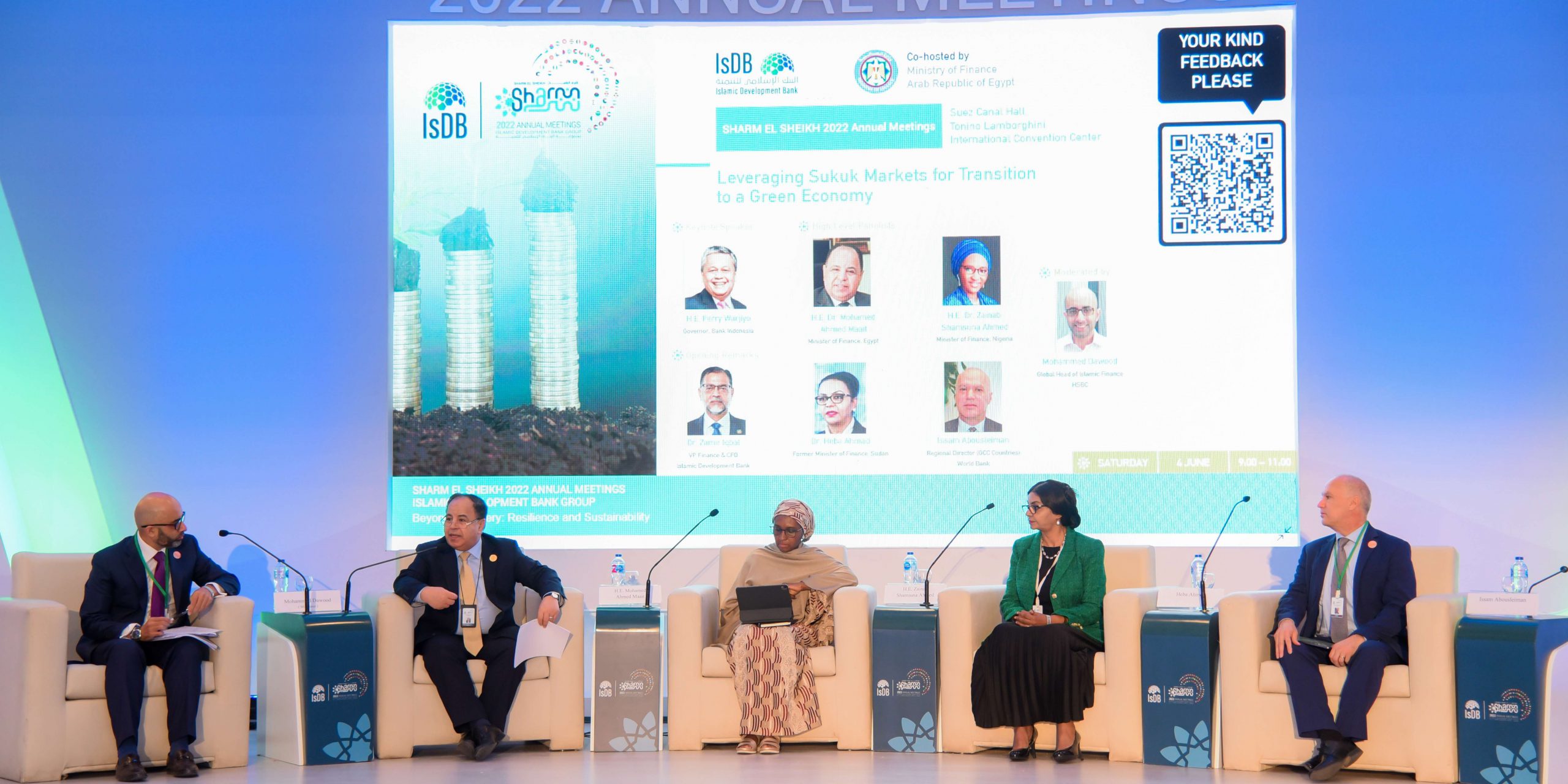Sharm El Sheikh, Egypt, June 4, 2022— A high-level panel has echoed the call for Islamic Development Bank (IsDB) Member Countries to further leverage on Sukuk to mobilize much- needed funding for efforts to transition toward a green economy for a sustainable and resilient future.
The panel titled “Leveraging Sukuk Markets for Transition to a Green Economy” was jointly convened by IsDB’s Treasury Department and Climate Change unit and co-hosted by the Ministry of Finance of Egypt on the sidelines of the 2022 Annual Meeting of IsDB in Sharm El Sheikh, Egypt.
Dr. Zamir Iqbal, Vice President (Finance) and CFO of IsDB, welcomed the speakers and emphasized the importance of Sukuk, especially Green Sukuk for Member Countries, as a tailored instrument to drive capital flows to transition efforts for a better future for the people, most of whom are living in the most climate-stressed regions of the world.
The Keynote Address was delivered by H.E. Mr. Perry Warjiyo, Governor of Bank Indonesia, who shared the successful Green Sukuk experience, including challenges and lessons learned by the Republic of Indonesia, which continues to expand its very successful Green Sukuk program and its commitment to greening the economy on the path towards achieving their net-zero target.
The high-level panelists included H.E. Dr. Mohamed Maait, Minister of Finance of Egypt; H.E. Dr.
Zainab Shamsuna Ahmed, Minister of Finance of Nigeria; Dr. Heba Ahmad, Former Minister of Finance of Sudan; and Mr. Issam Abousleiman, Regional Director (GCC Countries) at the World Bank. Mr. Mohammad Dawood, Global Head of Islamic Finance, HSBC, was the moderator.
In his remarks, H.E. Dr. Mohamed Maait shared the experience of Egypt issuing its debut Green Bonds and the plan for their debut Sukuk issuance which is currently in the works. He stressed the need for Member Countries to further enhance skills and processes for actualizing Green Sukuk due to the additional framework and reporting requirements by issuers to cater to the demands of investors.
This will help to reap the benefits of diversifying sources of funding as well as attracting new investors including those who focus on Environment, Social and Governance (ESG) and Socially Responsible Investments (SRI) linked instruments.
H.E. Dr. Zainab Shamsuna Ahmed highlighted the successful domestic Sukuk issuances within Nigeria which helped build critical infrastructure in the country and their plans for a debut sovereign Sukuk as well as Green bonds/Sukuk in the near future. Social housing and large-scale solar projects are among the project categories that they are focusing on to build a strong pipeline for these potential issuances.
Dr. Heba Ahmad presented the ambitions of Sudan for a national climate action plan, while also reiterating the importance of close coordination among different line ministries through working groups in order to align their objectives with the national plan and exert all their efforts for generating a pipeline of bankable projects that prioritize green growth for a better future. Countries can then use these projects as the underlying pool of assets for potential Green Sukuk issuances.
Mr. Issam Abousleiman called for greater regulatory support and streamlining of taxonomies to make it easier for countries to classify projects as green. This will help to scale up the volume of Green Sukuk issuances and ultimately boost the shared benefits of green growth in Member Countries.


